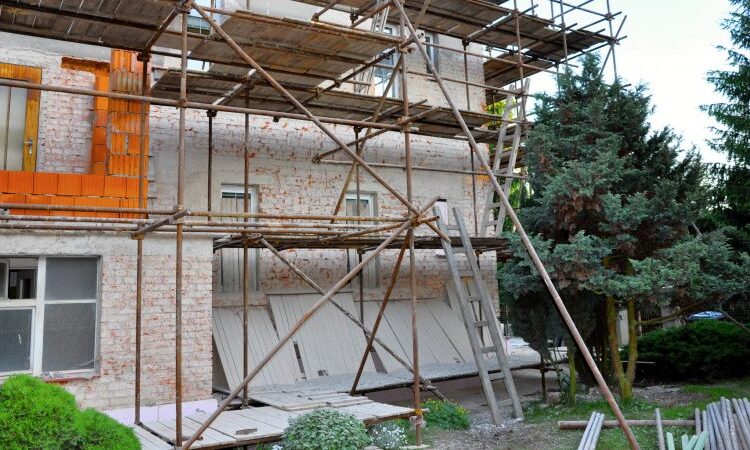
Buildings are a challenge to decarbonise because of the high upfront investment associated with renovation, but campaigners say new financial instruments could help fix this.
Europe’s 130 million buildings – mostly private homes and apartment blocks – are responsible for 36% of the EU’s CO2 emissions and 40% of its energy consumption.
And renovating those to make them zero-emission, in line with EU climate objectives, is a massive challenge.
“Now we really have to kickstart massive renovation,” explained Luxembourg’s energy minister Claude Turmes at the November launch of the EU Renovation Loan, a new financial instrument to help boost renovation.
Turmes cited one key lever to boost renovation: standardisation, including when it comes to financing and the training of skilled workers.
“Today, it’s too burdensome to get finance,” the minister underlined.
In 2020, the European Commission launched its Renovation Wave, an initiative designed to double the rate of deep renovations in the EU to about 2% of the building stock every year.
“It’s clear that improving the energy performance of EU building stock needs to be at the heart of our efforts” to reach climate neutrality by 2050, said Robert Nuij, in charge of the energy efficiency team at the European Commission’s energy department.
Yet, despite rising energy prices, deep renovations remain stuck at 1% annually.
“Many homeowners don’t have easy access to sufficiently long-term and low-cost funding to make the administrative and practical hassle of organising a renovation,” explains Peter Sweatman, CEO of consultancy Climate Strategy, who authored the Renovation Loan report, with support from the European Climate Foundation and green NGOs.
While governments already provide support for renovation, budgetary constraints limit their ability to finance the renovation of buildings.
“Governments struggle to promote efficiency investments as they can’t afford to provide grants to everyone,” the report explains.
Funding gap
The EU’s buildings are worth €17 trillion and are largely debt-free, with only €6 trillion covered by mortgages, the report says.
“At present there is a funding gap of €214 billion a year for green financing for residential buildings,” explained Sean Kelly, an Irish lawmaker who is shadow rapporteur on the EU’s energy performance of buildings directive (EPBD) for the centre-right EPP group in the European Parliament.
Senior and young people in particular often struggle to obtain financing to renovate their homes because banks are reluctant to offer loans to them.
This is where Sweatman’s “renovation loan” would come in.
At the centre of it is the European Central Bank (ECB), which would offer backing for the scheme by allowing retail banks to offload renovation loans from their debt portfolios. The EU would also need to act as a guarantor for the loans, to reduce risk premiums.
A zero-coupon structure, the lowest 30-year compound interest rate available to the EU and ECB liquidity would make European Renovation Loans uniquely attractive for retail lenders to distribute, the report argues.
“Bank lending is an appropriate channel to respond to the financing of renovations,” Kelly emphasised. “They are elastic, decentralised, via the extensive network of commercial retail banks,” he noted, adding that he was looking at introducing elements of the proposal in the EU’s buildings directive. Turmes echoed similar aspirations.
“The market should be for the benefit of society and not siphon the life out of it,” he said.
The EU must “find a balance between the need to revamp the built environment and not impose undue financial burden on households and businesses,” the Irish lawmaker said at the launch event.
Still, an EU renovation loan likely won’t fix all issues related to the EU’s ageing building stock, the report notes, saying there are also policy and practical barriers that need to be removed.
“There are no silver bullets, multiple actions, financial instruments and support schemes will be necessary,” stressed Nuji.
[Edited by Frédéric Simon]








